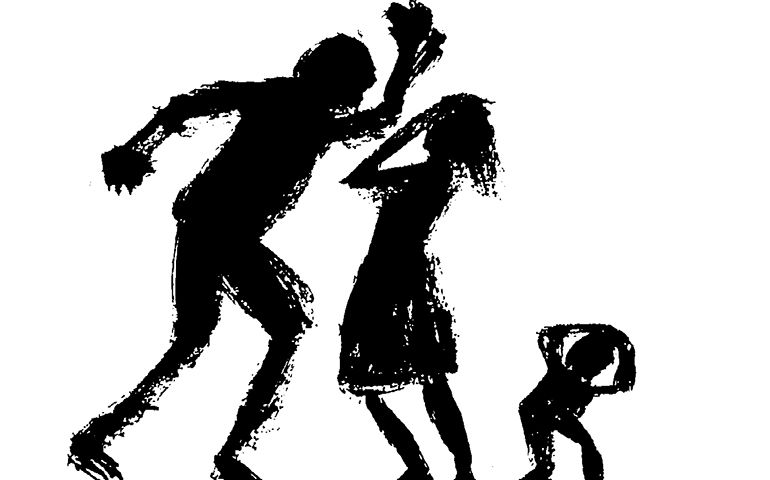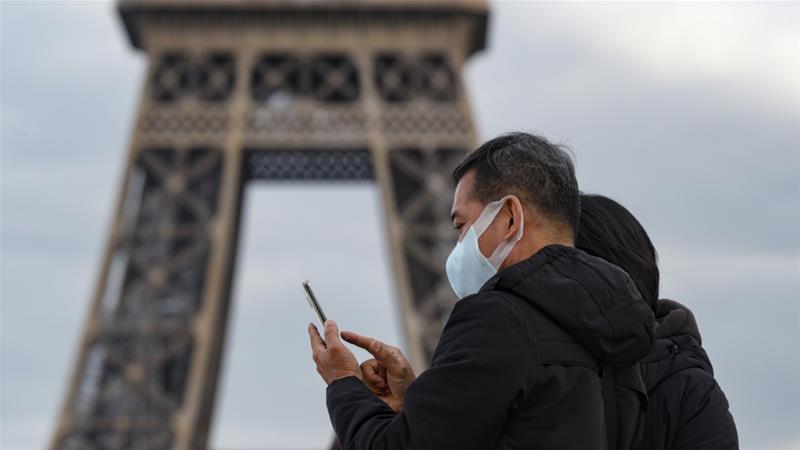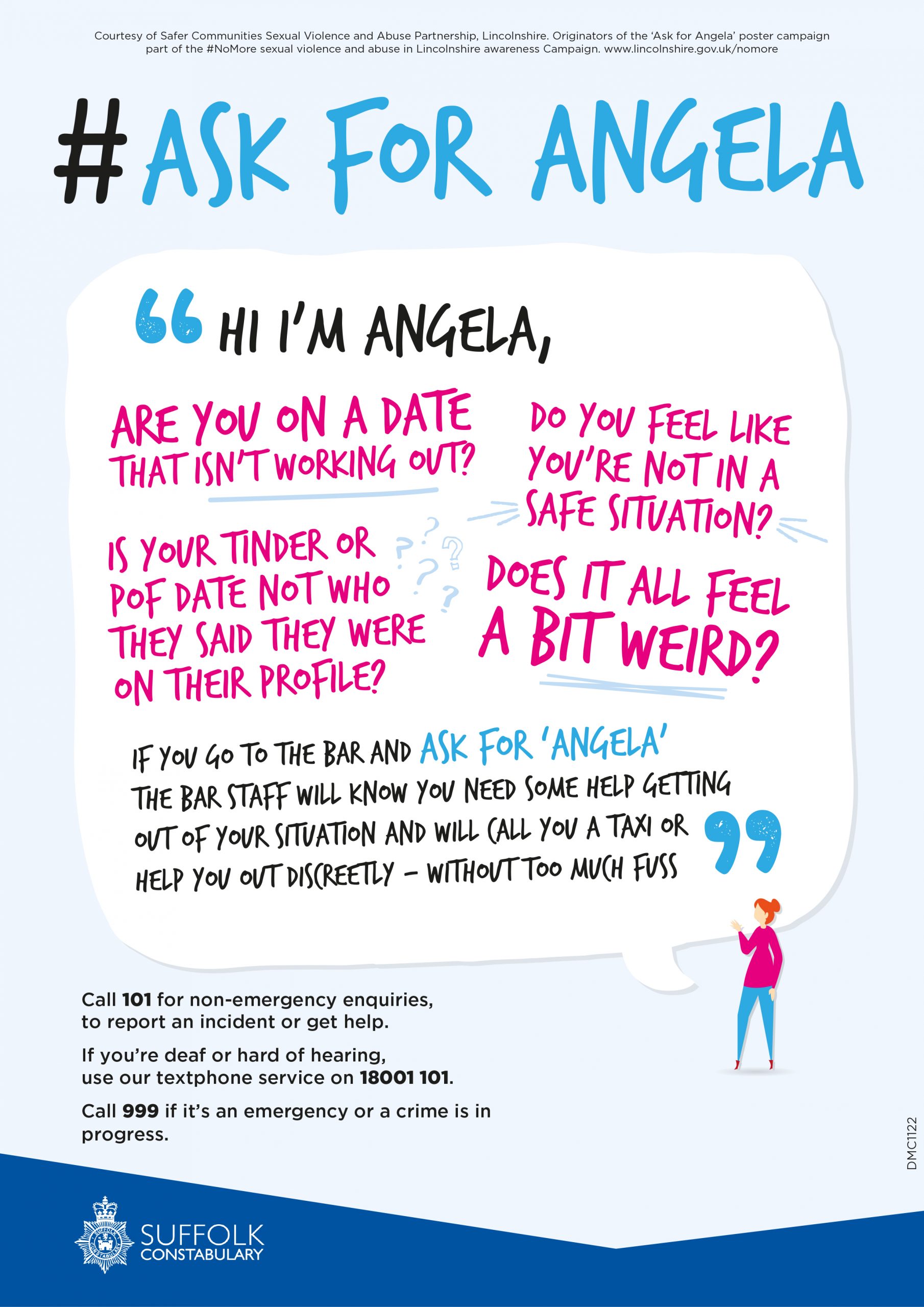Domestic violence rates spike during coronavirus lockdown

A few minutes every morning is all you need.
Stay up to date on the world's Headlines and Human Stories. It's fun, it's factual, it's fluff-free.
With more than half of the world’s population under home lockdown due to the COVID-19 pandemic, cases of domestic violence have been increasing around the globe.
In many of these cases, victims are unable to leave due to their economic situation or because the coronavirus crisis limits their ability to find an alternative place to live.
With lockdowns in affected countries set to persist for weeks or even months, activists are looking at ways to protect victims in worsening domestic situations.
America’s rates of domestic violence are on the rise

As reported by NBC News, law enforcement officials throughout the United States have seen increased reports of domestic violence in multiple cities. This increase coincides with stay-at-home orders issued by many state governments in an effort to contain the spread of the coronavirus.
NBC contacted multiple law enforcement agencies throughout the country. Of the 22 that responded, 18 reported more cases in March than in February. Houston, Texas saw an increase of more than 300 reported incidents, while Charlotte, North Carolina and the surrounding area saw a jump of 517 reported incidents.
Phoenix, Arizona also saw 200 more domestic violence calls in March than in February.
Global rates of domestic violence on the rise

The US is not the only country experiencing increased rates of domestic violence in the wake of strict lockdowns.
France and Spain have reported increased rates as well, with both countries adopting a system so victims can secretly alert authorities. Victims can visit a pharmacist and say the code word “mask 19” to discreetly reveal their situation.
This is similar to the pre-existing #AskforAngela campaign in London that encourages victims to “ask for Angela” at venues as a way of secretly alerting someone of their situation.

Since a lockdown began in the United Kingdom, the country has seen a 25% increase in calls made to the National Domestic Abuse helpline. There have also reportedly been hundreds of additional calls made in the weeks since the country began restricting its citizens’ movements.
A perilous situation
While the lockdowns are considered necessary to protect public safety during the pandemic, they’ve fostered a risky situation for those already in abusive relationships.
Speaking to France24, the Paris-based psychiatrist Marie-France Hirigoyen warned that the lockdown is making the situation worse.
“Domestic violence perpetrators are already fragile individuals who cannot bear frustration,” Hirigoyen stated, “so the confinement will only worsen the situation.”
In a document discussing the broader human rights implications of the coronavirus outbreak, Human Rights Watch reported that China has also seen increased rates of domestic violence due to lockdowns.
Their report found that the domestic violence rate had tripled in February of this year compared to the same period in 2019.
COVID-19 originated in the Hubei province of China. As a result, the country was the first to implement stay-at-home policies for its citizens, including shutting down public transportation as early as January.
What is Intimate Partner Violence?
The federally sponsored National Criminal Justice Reference Service (NCJRS) supports research and policy advocacy related to the criminal justice system and drug control in the US.
In 2018, they published the statistics for 20 years of trends related to Intimate Partner Violence (IPV), or domestic violence against a spouse or partner in an intimate relationship.
Broadly, NCJRS defines IPV as a situation in which “one partner asserts power and control over the other.” In the US, there isn’t one federal definition of IPV, as each state sets their own laws, but IPV is widely considered to involve “physical, sexual, and psychological abuse, as well as economic coercion.”
From 1995-2015 in the US, the national trend for instances of IPV was moving in a downward trajectory, with violence down from 15.5 incidences per 1,000 women to 5.4 in the last year of the study.
For men, the trend had dropped from 2.8 incidences per 1,000 men to 0.5.
However, the report warns that due to the personal nature of the crime, IPV is highly underreported for both genders. The reasons for this include fear, economic dependence, the protection of children, or lack of access to or knowledge of support systems.
It’s estimated that 47% of men and women will experience psychological IPV in their lifetimes. Contact sexual violence (which “includes rape, being made to penetrate someone else, sexual coercion, and/or unwanted sexual contact perpetrated by an intimate partner”) will be experienced by 16% of women and 7% of men. All races and sexual orientations experience IPV.
In the UK in 2010, a men’s rights group, Parity, published a study suggesting that men actually make up 40% of domestic violence instances but that the statistics are unduly biased towards female victims.
A March 2018 report by the group found that there were 55,000 female victims in London in 2016 and 2017, compared to 17,100 male victims. This is equal to an overall rate of 23.7% for men.
The group argues that men are far more likely to underreport IVP due to feelings of shame or fear that they will “lose contact with their children or that their children will be exposed to an abusive mother if they left home.”
Americans at home
Though the federal government has yet to put out a national stay-at-home order, as of April 7, 42 states have issued some sort of directive mandating that citizens remain home except when absolutely necessary.

While Dr. Anthony Fauci, one of the experts leading the US response to the pandemic, has said he supports a national stay-at-home order for the entire country, President Donald Trump has yet to give such an order.
It is unclear if the federal government can constitutionally enforce such a stay-at-home order. But as states increasingly turn to lockdowns to stop the disease’s spread, legal experts believe any challenges to the order would fail as long as they don’t unfairly target or cause harm to particular groups.
[article_ad]
Have a tip or story? Get in touch with our reporters here!
Sign up for daily news briefs from The Millennial Source here!




Comments ()